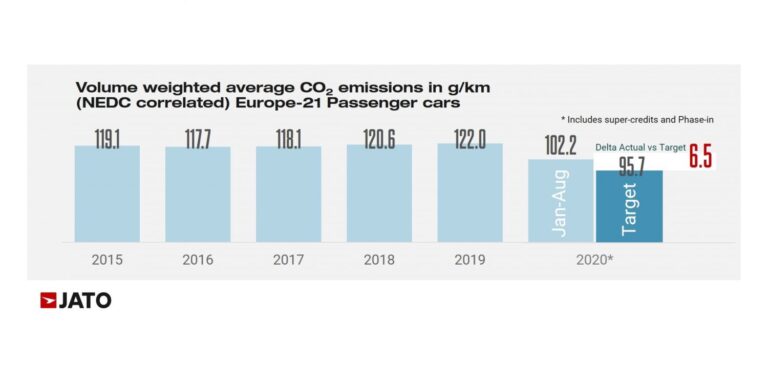According to data collected by automotive industry analytics specialist Jato Dynamics, many OEMs have started to see a significant reduction in their average emissions levels and are largely on track to hit targets set by the European Commission.
The data, collected and updated on a monthly basis and sourced from 21 countries across Europe, shows that average CO2 emissions totalled 102.2g/km, under the New European Driving Cycle (NEDC), from January 2020 to August 2020. By these calculations, the European automotive market is currently 6.5g/km over their combined target for 2021.
Despite overall vehicle registrations falling by 29% between January and September this year – when contrasted with the same period in 2019 – the data also shows that registrations for electrified cars increased by 67% through September to 1.54 million units. This increase goes some way to explain the double-digit drops seen in demand for gasoline and diesel cars, and the increase in market share for EVs from 7.8% in January – September 2019, to 18.1% in January – September 2020.
Geely Group, owner of Volvo cars, ranked best in the CO2 rankings, outperforming Toyota, which has traditionally led by brand in the CO2 reduction race. Geely met the target by August, four months ahead of the deadline. Its CO2 target for 2020 was an average of 110.3 g/km, but by August 31 its average was 103.1 g/km – making it the only manufacturer to outperform the target. It would appear a focus on EV sales is behind this achievement, with electrified vehicles accounting for almost half of its registrations in August, and 38% in January-August 2020.
BMW is next in line to meet the target. With an average of 103.5g/km in August, it was only 0.54g/km above a target of 102.9g/km. Toyota though is around 2.2g away from its target, a deficit it may struggle to reel in given a lack of pure EV offerings currently on sale in Europe.


